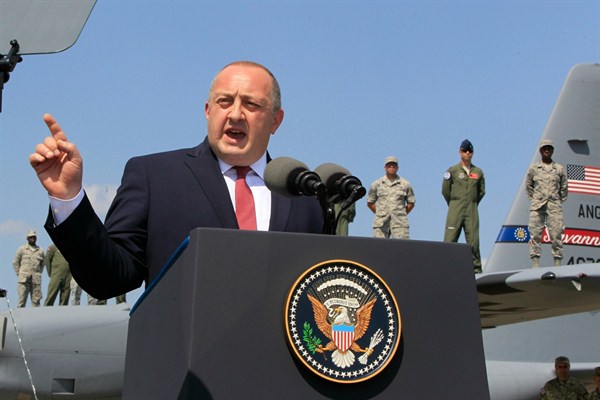In late November, the U.S. State Department gave its seal of approval for the sale of advanced Javelin anti-tank missiles to Georgia. Long coveted by the aspiring NATO member, the weapons appear to offer a boon to Tbilisi’s defense capabilities. Yet any added military value is still modest compared to the overwhelming military superiority of Russia, Georgia’s chief external threat. Since fighting a brief war with Russia in 2008, Georgia has faced a security dilemma in how it should deal with Moscow, balancing diplomacy and talks with military reforms and defense spending. How Georgia deploys the new weapons—and how that is interpreted by Moscow—may do more to determine Georgian security than the missiles themselves.
On Nov. 20, the U.S. Defense Security Cooperation Agency announced that the U.S. State Department had approved a “possible Foreign Military Sale to Georgia for Javelin Missiles and Command Launch Units for an estimated cost of $75 million.” The package reportedly includes 410 Javelin missiles, 72 command launch units, 10 “Basic Skill Trainers” and “up to [70] simulated rounds.”
The news was largely applauded across the U.S. political spectrum and appeared to receive swift congressional approval, despite a late-hour proposed bill to block the sale by Republican Sen. Rand Paul. Although both Democrats and Republicans regarded Georgia’s Javelin request favorably, the Trump administration’s determinations on the matter had up to that point been mostly unclear.

